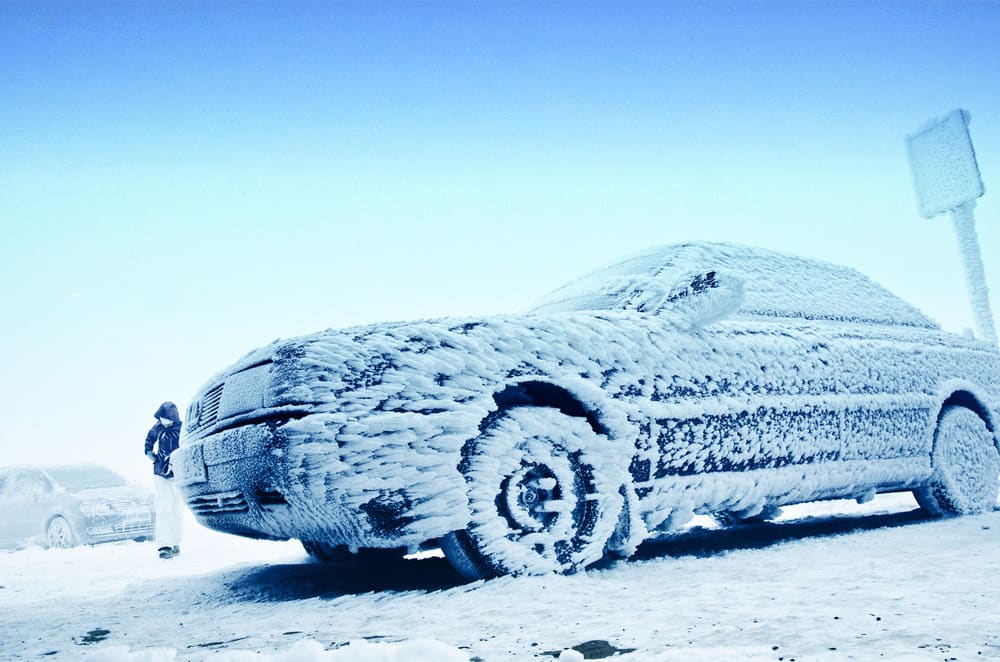

It takes some pretty extreme temperatures, but a frozen battery is possible. That’s why winter car maintenance is so important, and why it’s vital that you make sure that your battery is fully charged. If it has a full charge, your battery can withstand temperatures as low as 76 below zero. If it’s fully discharged though, (in other words, it has a charge of 12 volts or less), it will freeze at the same temperature that water freezes. If you think that there’s a huge difference between a fully charged and a fully discharged battery, you’d be mistaken. There’s actually only about 8/10 of a volt difference.
The typical 12 volt battery has six cells, and if even one cell is damaged, the voltage will drop to the point where the battery is fully discharged. Battery fluid is made up of about 75% water, and 25% sulfuric acid. The acid works with the lead plates in the battery to make electricity, and the water is mainly discharged, and susceptible to freezing. Then, when the water freezes, it expands, pushing the lead plates together and ruining the battery. That’s why proper battery care is vital during the winter months.
YourMechanic can use a voltmeter to check your battery. Consider it a routine part of your winter car maintenance. A frozen battery is a definite possibility, and one that you want to avoid if you’re counting on your car to deliver you to where you want to go over the course of the winter.



